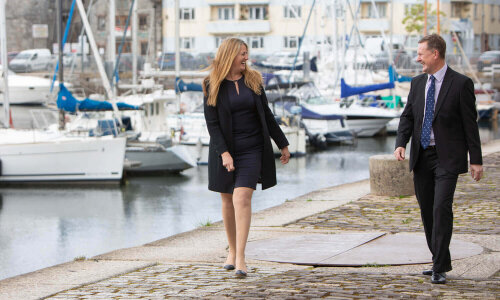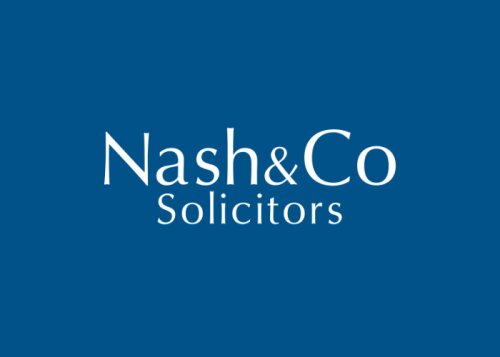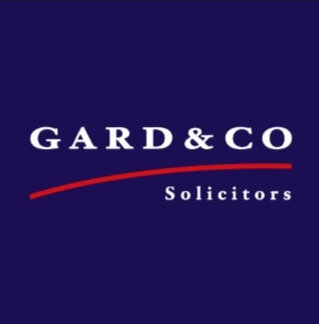Best Child Abuse Lawyers in Plymouth
Share your needs with us, get contacted by law firms.
Free. Takes 2 min.
Free Guide to Hiring a Family Lawyer
List of the best lawyers in Plymouth, United Kingdom
About Child Abuse Law in Plymouth, United Kingdom
Child abuse is a serious crime in Plymouth, United Kingdom, and is addressed with utmost seriousness by authorities, legal professionals, and support organisations. In the UK, child abuse encompasses any form of physical, emotional, sexual harm, or neglect of a person under the age of 18. The law is designed to safeguard children from harm and prosecute those responsible for abuse. In Plymouth, local authorities work in conjunction with the police, social services, and child protection teams to investigate and address allegations of abuse, prioritising the safety and wellbeing of children.
Why You May Need a Lawyer
Child abuse cases are highly sensitive and complex. There are several scenarios where seeking legal advice is essential, such as:
- If you are a parent or guardian facing allegations of child abuse
- If you suspect child abuse and are unsure how to report it or protect the child involved
- If your child, relative, or someone you know is accused of child abuse
- If you are undergoing care proceedings with social services involvement
- If you are a professional (such as a teacher or healthcare worker) who needs guidance on mandatory reporting duties
A solicitor specialising in child protection can guide you through the investigation process, represent your interests in court or meetings, and help protect your legal rights.
Local Laws Overview
Child abuse law in Plymouth follows national UK legislation, such as the Children Act 1989 and 2004, the Sexual Offences Act 2003, and the Working Together to Safeguard Children statutory guidance. Key aspects include:
- The role of Plymouth City Council: Local authorities have legal duties to investigate and act upon suspected child abuse or neglect.
- Thresholds for intervention: Social services may intervene when there is reasonable cause to suspect that a child is at risk of significant harm.
- Reporting duties: Professionals working with children must promptly report suspected abuse.
- Care proceedings: If it is decided a child cannot remain safely with their family, the local authority can seek a care order from court to remove or protect the child.
- Criminal offences: Physical, emotional, or sexual abuse of a child is a criminal act and can result in arrest, prosecution, and imprisonment.
- Child protection conferences: Multi-agency meetings are convened to develop a protection plan for the child.
The specific handling and prevention of child abuse in Plymouth are in line with these national legal frameworks, adapted for local needs and resources.
Frequently Asked Questions
What constitutes child abuse under UK law?
Child abuse is any form of physical or emotional ill-treatment, sexual abuse, neglect, or exploitation resulting in actual or potential harm to a child's health, development, or dignity.
What should I do if I suspect a child is being abused?
You should report your concerns as soon as possible to Plymouth City Council’s social services, the police, or a trusted professional. In emergencies, always call 999.
Can children be taken into care without parental consent?
If authorities believe a child is at immediate risk of significant harm, they can apply to the court for an emergency protection order or care order, sometimes without parental consent.
What happens when child abuse is reported in Plymouth?
Social services, possibly in conjunction with the police, will investigate the concerns. There may be assessments, interviews, and home visits to determine the child’s safety and wellbeing.
What rights do parents have during an investigation?
Parents have the right to be informed of allegations, to seek legal representation, and to participate in meetings relating to their child’s welfare, unless restricted by court order.
Are false allegations of child abuse taken seriously?
Yes, false allegations are taken seriously. They can have severe consequences for all involved. Legal advice is vital if you face such circumstances.
Can someone accused of child abuse be arrested?
Yes, if there is sufficient evidence, the police can arrest and formally question a suspect. Depending on the investigation, charges may follow.
What support is available for abused children in Plymouth?
Abused children may have access to counselling, therapy, medical care, and safeguarding plans arranged by social services and specialist charities.
What information do I need to provide when reporting abuse?
Give as much detail as possible, including the child’s name, address, the nature of your concerns, and any immediate risk to the child’s safety.
How can I access legal aid for a child abuse matter?
Legal aid is often available for parents, carers, or children involved in care proceedings or facing allegations of abuse, subject to eligibility tests based on income and case merit. Speak to a solicitor or Citizens Advice for guidance.
Additional Resources
If you or someone you know needs help or guidance on child abuse issues in Plymouth, consider contacting the following:
- Plymouth City Council Children’s Services - Main local authority responsible for safeguarding children.
- Devon and Cornwall Police - For immediate danger or criminal investigations into abuse.
- Court-appointed independent advocates, such as Children and Family Court Advisory and Support Service (CAFCASS).
- NSPCC Helpline - Offers confidential expert advice on all child protection matters.
- Childline - Free and confidential helpline for children and young people.
- Citizens Advice Plymouth - For legal advice and support navigating care proceedings or reporting abuse.
Next Steps
If you need legal assistance relating to child abuse:
- Act promptly if a child is at risk by contacting the police or social services immediately.
- Keep a record of your concerns, including dates, times, descriptions, and anybody else involved.
- Consult a solicitor specialising in family or child law as soon as possible. You can find one through the Law Society’s “Find a Solicitor” service or ask Citizens Advice for recommendations.
- Check if you are eligible for legal aid, especially if care proceedings have begun or you are facing allegations.
- Follow any advice given by professionals, but also ensure you understand your rights and responsibilities during investigations.
- Seek emotional support from trusted organisations or professionals, as child abuse investigations are often distressing for families and all involved.
Taking early legal advice can help you understand your position, prevent costly mistakes, and safeguard the interests of everyone affected, especially children.
Lawzana helps you find the best lawyers and law firms in Plymouth through a curated and pre-screened list of qualified legal professionals. Our platform offers rankings and detailed profiles of attorneys and law firms, allowing you to compare based on practice areas, including Child Abuse, experience, and client feedback.
Each profile includes a description of the firm's areas of practice, client reviews, team members and partners, year of establishment, spoken languages, office locations, contact information, social media presence, and any published articles or resources. Most firms on our platform speak English and are experienced in both local and international legal matters.
Get a quote from top-rated law firms in Plymouth, United Kingdom — quickly, securely, and without unnecessary hassle.
Disclaimer:
The information provided on this page is for general informational purposes only and does not constitute legal advice. While we strive to ensure the accuracy and relevance of the content, legal information may change over time, and interpretations of the law can vary. You should always consult with a qualified legal professional for advice specific to your situation.
We disclaim all liability for actions taken or not taken based on the content of this page. If you believe any information is incorrect or outdated, please contact us, and we will review and update it where appropriate.










